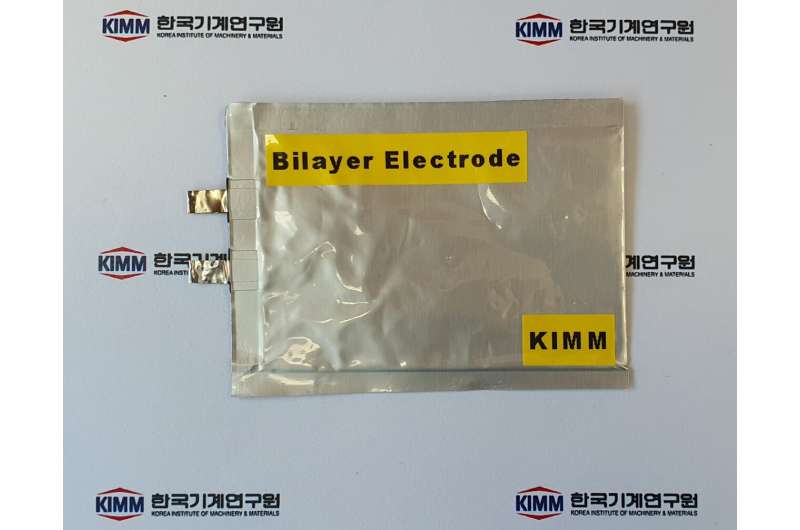New electrode design for lithium-ion batteries that improves performance
Korea Institute of Machinery & Materials (KIMM) has announced the development of the design and process technology for the world’s first battery electrode that significantly improves the performance and stability of batteries used in electronic devices such as smartphones, laptops, and electric vehicles.
A joint research team led by principal researcher Seungmin Hyun of the Department of Nano-Mechanics at KIMM, an institution under the jurisdiction of the Ministry of Science and ICT, and Professor Hoo-jeong Lee of Sungkyunkwan University have developed a new battery technology that uses an electrode (anode) structure that enhances the reliability and performance of traditional lithium-ion batteries.
The results of their research achievement were published in the journal Advanced Functional Materials.
In order to develop a design and process technology that maintains high performance and reliability even when the electrode of the lithium-ion battery is thick, the KIMM-SKKU joint research team formed a bi-layered anode. Additionally, the anode is designed with grooves allowing small materials with improved ion conductivity and electrical conductivity to be placed between high-capacity materials.
In general, lithium-ion battery electrodes are manufactured by coating and drying a slurry so that it can be evenly distributed over the entire electrode. As such, it is the uniformity of the slurry that determines the performance of battery. The thicker the electrode, the lower the energy density and uniformity, making it difficult to maintain performance in a high-power environment.

However, with the anode structure of this newly developed battery, uniform reaction stability can be achieved while maintaining high energy density throughout the electrode, even if the electrode is thick. This is particularly helpful in improving the performance and lifespan of batteries.
Principal researcher Seungmin Hyun stated that this achievement is an efficient method to improve the performance and lifespan of batteries by applying a new design to traditional lithium-ion battery materials and processes. He added that the team will continue to make efforts to apply this new technology to electric vehicles and soft robots that require high energy density in high-power environments, as well as to electronic devices such as commercial smartphones and laptops.
More information:
Myoung‐Ho Kim et al, Design Strategies toward High‐Performance Hybrid Carbon Bilayer Anode for Improved Ion Transport and Reaction Stability, Advanced Functional Materials (2022). DOI: 10.1002/adfm.202208665
Provided by
National Research Council of Science & Technology
Citation:
New electrode design for lithium-ion batteries that improves performance (2023, January 27)
retrieved 27 January 2023
from https://techxplore.com/news/2023-01-electrode-lithium-ion-batteries.html
This document is subject to copyright. Apart from any fair dealing for the purpose of private study or research, no
part may be reproduced without the written permission. The content is provided for information purposes only.
For all the latest Technology News Click Here
For the latest news and updates, follow us on Google News.
